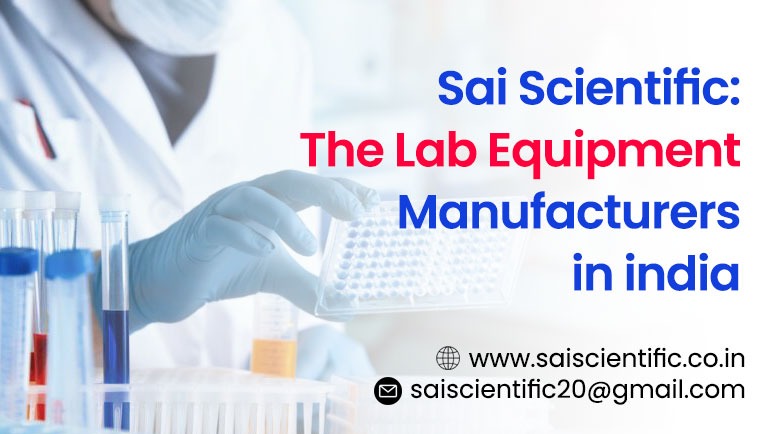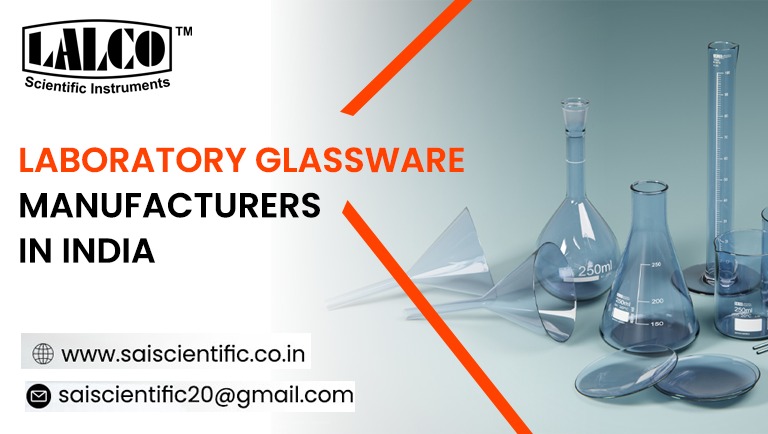Sai Scientific Instruments: Sai Scientific Instruments is a leading supplier of scientific research Laboratory equipment, reagents, consumables, and software. They provide a broad range of laboratory equipment, including analytical instruments, lab consumables, cell culture products, and more.
Get in touch with us
Address:
# 24,VIKAS PURI, NEAR SAI BABA MANDIR POST OFFICE INDUSTRIAL AREA AMBALA CANTT-133001 HARYANA (INDIA)
Call Us:+91 98960-02169
Website: https://saiscientific.co.in/
Here’s a List of Common Laboratory Equipment along with Their Uses:
General Lab Equipment:
1) . Beaker
Use: Mixing, stirring, and heating chemicals. Not suitable for precise volume measurements.
2). Erlenmeyer Flask
Use: Holding and mixing liquids; ideal for swirling without spillage. Sometimes used for titrations.
3). Graduated Cylinder
Use: Measuring precise liquid volumes.
4). Volumetric Flask
Use: Preparing precise standard solutions.
5.) Test Tube
Use: Holding, mixing, or heating small quantities of substances.
6). Pipette
Use: Transferring small, precise volumes of liquid.
7). Burette
Use: Delivering precise liquid volumes, commonly used in titrations.
8). Microscope
Use: Magnifying small objects or specimens, commonly in biology.
Heating Equipment:
9). Bunsen Burner
Use: Providing a flame for heating substances.
10). Hot Plate
Use: Heating substances without an open flame.
11). Crucible
Use: Heating substances to very high temperatures.
12). Heating Mantle
Use: Heating flasks with consistent temperature distribution.
Measuring and Observation Equipment:
13). Balance (Analytical or Digital)
Use: Measuring mass with high precision.
14). Thermometer
Use: Measuring temperature.
15). Spectrophotometer
Use: Measuring the intensity of light absorbed by a solution to determine concentration.
16). pH Meter
Use: Measuring the acidity or alkalinity of a solution.
17). Manometer
Use: Measuring gas pressure.
Separation Equipment:
18). Centrifuge
Use: Separating substances based on density by spinning at high speeds.
19). Separatory Funnel
Use: Separating immiscible liquids.
20). Filter Paper and Funnel
Use: Filtering solids from liquids.
21). Distillation Apparatus
Use: Separating mixtures based on boiling points.
Storage and Support Equipment:
22). Watch Glass
Use: Holding small samples, evaporating liquids, or covering beakers.
23). Clamp and Stand
Use: Holding equipment in place during experiments.
24). Desiccator
Use: Storing materials in a moisture-free environment.
25). Mortar and Pestle
Use: Grinding solids into fine powders.
26). Reagent Bottle
Use: Storing chemicals safely.
27). Petri Dish
Use: Growing cultures or observing specimens.
Safety Equipment:
28). Safety Goggles
-
- Use: Protecting eyes from chemicals and debris.
29). Lab Coat
Use: Protecting clothing and skin from spills.
30). Fume Hood
Use: Ventilating harmful fumes or gases generated during experiments.


